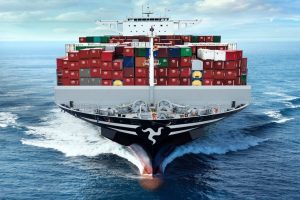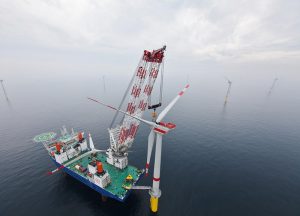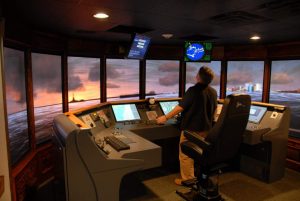
How to get a job at sea? How do I become a deckhand on a cargo ship? These questions rank among top maritime search queries. Both newbies and experienced professionals face the problem of finding decent nautical jobs. A lot of seafarers have been stuck onshore for years making the same mould mistakes in their employment attempts. In this article we come up with several tips how to find job at sea and make a spectacular maritime career.
How do I get a job on a ship?
The experience has shown that seafarers who are really looking for a job find a suitable vacancy sooner or later. You just need to set a clear goal and follow a certain algorithm.
1) Write your seafarer’s Application Form and Cover Letter correctly. We’ve provided guidance about writing them in our previous articles. The Application Form or CV is an important tool in your search for a job as it helps to reach crewing companies and shipowners that you cannot visit personally; therefore, a lot depends on its content and appearance. Choose the appropriate file name, photo and avoid any spelling mistakes in your sea-going experience and certificates.
2) Send out your Application Form or CV at regular intervals. Every time you return home from a trip or at the end of a project (for an offshore fleet) you should update your profile in the crewing companies’ databases. It is a good idea to update after obtaining new certificates or maritime documents as well.
There are convenient applications for seafarers that allow making mass mailing automatic. If you trouble to update your profile regularly you are always in recruiters’ shortlists. So, when the suitable vacancy pops up they will remember about your candidacy and contact you.
3) Choose the right crewing agency. Company websites and maritime forums provide an abundance of information, so you can collect your own database of recruiters worth contacting as well as companies that should better be avoided. These might be crewing operators that work with unsuitable types of vessels (for instance candidates with no experience never join tankers and offshore vessels, don’t waste your time) or obvious fraudsters (these are usually discussed on maritime forums). Nevertheless, beware if you are offered a salary incomparable to your experience and with a luring departure date – most likely you are talking to job scammers. They will take money (for visas or any other document arrangement); then your boarding will be “canceled” at the last moment.
4) When you are planning to visit the office of some crewing or shipowing company make sure that your appearance corresponds to the purpose of your visit. Take your Application Form or CV and originals or copies of certificates with you.
5) Engage your fellow seafarers into your job quest. They might know about some suitable opening in their company. Moreover, you are always more likely to get a position when you come to the interview by recommendation.
6) One more important point in finding job at sea quickly is how often the seafarer has changed his employers previously. Do not move from company to company after every contract even if you are driven by the noble goal of gaining the experience. Soon you will be rejected without any explanation since many shipowners prefer people who do not change companies like socks.
7)

Get additional professions and skills. AB – Crane Operator or Motorman – Welder has a much better chance of getting onboard than just an Able Seaman. You can add to this a higher salary, overtime as well as an opportunity of transfer to offshore fleet for crane operators in case of an appropriate certification.
8) Learn English. Poor knowledge of foreign language is the cause of many refusals where a candidate fits by other parameters perfectly. It is unreasonable to miss a good opportunity because of the language now since there are so many instruments that allow learning English anywhere in the world.
9) Choose the vessel for your first trip correctly. If you find yourself on a fishing vessel it will be very difficult to move to the merchant fleet later. The ideal choice is small container ships or bulk carriers. There are no harsh experience requirements while junior officers and ratings can move from one type of vessel to another quite freely.
First Trip and Building a Successful Seafarer’s Career
There are two difficult transitional moments in the seafarer’s profession – going to the first voyage and promotion from a rating to an officer; and the first step proves to be the most difficult and responsible. There are several ways to facilitate your future career:
- Follow up cadet programs of reputable shipowners. Many European and American companies employ young professionals on their vessels. Once you get on board as a cadet and prove yourself as a good specialist there is an excellent chance to return later to a higher position.
- Make sure your certificates and visas are always up to date, so you are ready to accept an urgent offer.
-

Image Credits to Marine Science Today Upgrade your knowledge. You need to stand out the line of other candidates to secure a place in a cadet program or get on board for the first time. Offer some competitive advantages i.e. fluent English, additional certificates, knowledge of bridge software, etc. Invest in your training; these skills are bound to be useful in future.
- Once on board, learn from your colleagues. Do not neglect the chance to upgrade your professional skills and English in case senior crewmembers take the trouble of teaching you.
- Determine your career development vector. Define the type of vessels you would like to work on and act accordingly. Each ship type (especially offshore vessels, cruise liners and tankers) has its own crewmembers’ certification system. Go through the required trainings in advance so as to be ready when the opportunity for transition comes.
- Be prepared for some downgrade in your career when moving from one fleet to another. For example, a CO on a container ship holding a DPO certificate can take the 2DPO or 3DPO position depending on the type of DP vessel. The region of work will not be prestigious as well. However, taking the right approach, promotion to SDPO (Senior Officer on a DP vessel) does not take much time.
- The similar situation will be happening when moving to a new position. A Chief Engineer without an experience will be offered a smaller vessel with less powerful propulsion unit compared to the job offer he might have received had he stayed in the 2nd Engineer’s capacity.
- If your goal is to work on a certain type of vessels – register on websites that publish specific vacancies (jobs on cruise liners, fishing vessels, tankers, offshore fleet, drilling industry).
- Stay up to date with company news and updates of the industry you are interested in. If you know that some shipowner is about to have a newbuilding delivered you can submit your CV just in time.

